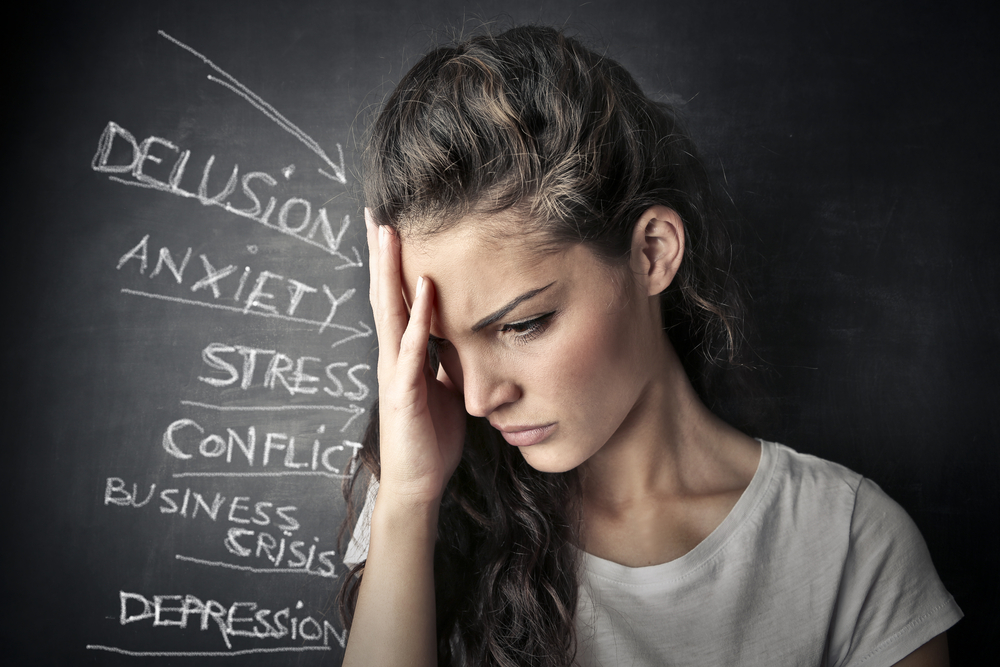Adults struggling with stress often experience depression or anxiety. But being diagnosed with one does not exclude the possibility that you also deal with the other. Find out what it means to have comorbid diagnoses of depression and anxiety, and what you should do if your initial diagnosis doesn’t cover everything you are experiencing.
Comorbid Depression and Anxiety is More Common Than You Think
Anxiety and depression are two of the most common psychiatric illnesses in America today. The National Center for Health Statistics estimates that in 2019, 18.5% of adults experienced depressive symptoms. Similarly, the Anxiety and Depression Association of America estimates anxiety disorders affect 18.1% of U.S. adults. More than half of patients with Major Depressive Disorder (MDD) also experience an anxiety disorder. There are many theories about why depression and anxiety occur together so often:
- Overlapping symptoms and diagnostic criteria (more on that below)
- Similar biological issues and brain chemistry involved in both
- Environmental triggers including stress, trauma, and neglect
- Overlapping genetic components
Get Help with Depression and Anxiety
Talk to a psychotherapist today about how to address both your anxiety and depression symptoms.
Why Doctors Sometimes Miss Comorbid Depression or Anxiety
Even though comorbidity happens more than half the time, many doctors will treat patients for depression or anxiety, not both. Often, in children, anxiety will manifest at an earlier age. Adults, on the other hand, are more likely to seek treatment for depression. They may assume their anxiety is just a part of adult life. When a patient comes in with one set of symptoms, the doctor may not look further to see what more is going on. This is especially true with anxiety and depression, since their symptoms often overlap:
Symptoms Common to Both Depression and Anxiety
- Trouble concentrating
- Insomnia (sleeping too little)
- Irritability or mood swings
- Fatigue
- Feelings of guilt
- Substance use or addiction
Symptoms More Common in Depression
- Depressed mood (or feeling low)
- Apathy (or lack of interest in enjoyable activities)
- Changes in appetite
- Slow movement
- Hypersomnia (sleeping too much)
- Feelings of worthlessness
- Suicidal thoughts or behaviors
Symptoms More Common in Anxiety
- Increased worry or fear
- Restlessness
- Shaking or sweating
- Muscle tension
The symptoms of both anxiety and depression also overlap with other disorders, like bipolar disorder (also called manic depressive disorder), obsessive compulsive disorder (OCD), or post-traumatic stress disorder (PTSD). Because of this, it is important to discuss all your symptoms with your doctor or psychotherapist to make certain any treatment is correctly targeting your mental health condition.
What it Means if You Suffer Both Depression and Anxiety
When depression and anxiety “work together” their symptoms can become more persistent, and more severe. That can increase the risk of suicidal thoughts and attempts, and make it more likely a person will be unable to work and need to pursue disability.
If you or someone you love is considering suicide, there is help available 24/7. Call or text the National Suicide Prevention Lifeline at 800-273-8255 to talk to someone.
Unfortunately, most of the medications and treatments approved for anxiety or depression are tested based on a single mental health diagnosis. That can mean that even if you are taking an antidepressant, like Lexapro or Prozac, or an anti-anxiety medication, like Xanax or Ativan, you could still experience symptoms caused by the other mental illness. While some medications are helpful in treating both, they may not be as effective. In addition, drug interactions between anti-anxiety pills and antidepressants can make side effects more disruptive to your everyday life. That is why, often, your doctor will recommend pairing or even replacing medication with behavioral therapy and psychotherapy to help control both sets of symptoms.
What to Do if You Think You Have More than One Mood Disorder
If your current treatment regime and coping mechanisms aren’t addressing all your symptoms, there is a good chance there may be something more going on. Talk to your doctor or therapist about what’s working and what’s not to help tailor your treatment regimen to your specific needs. If you are taking medications, be certain your doctor, psychotherapist, and psychiatrist are all working together so they can be on the lookout for drug interactions or side effects that will make you situation worse instead of better.
David Stanislaw is a psychotherapist with over 30 years of experience. He helps adults, teens and children with anxiety, depression, and other mental health concerns, individually, and as comorbid diagnoses. Contact David Stanislaw to get help today.


 Common Treatments for Depression
Common Treatments for Depression Are Childhood Family Patterns Affecting Your Marriage?
Are Childhood Family Patterns Affecting Your Marriage? 7 Ways Therapy Can Make You a Better Parent
7 Ways Therapy Can Make You a Better Parent